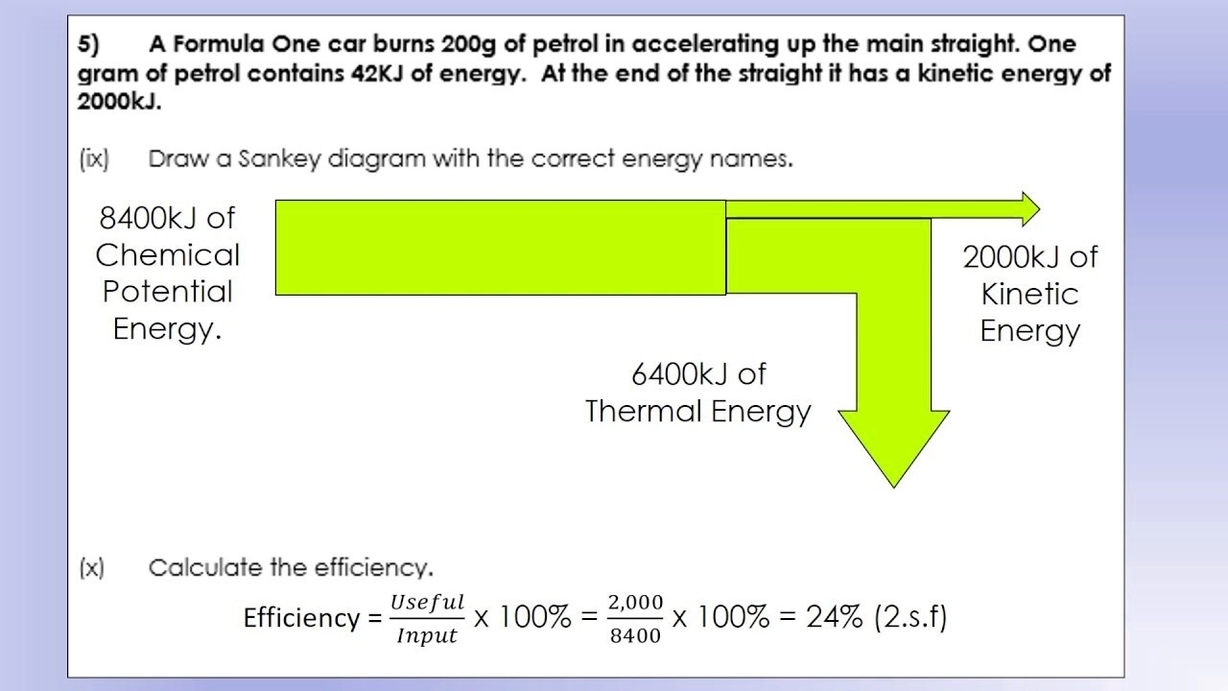
Efficiency is a concept that measures how well a process or a device can convert input energy into useful output energy. In science, efficiency is often expressed as a ratio or a percentage of the useful energy transferred over the total energy supplied. For example, if a light bulb converts 20% of the electrical energy it receives into light energy, and the rest is dissipated as heat, then its efficiency is 20%.
There are different ways to find the efficiency of a system, depending on the type of energy involved and the purpose of the calculation. Here are some common methods:
– For heat engines, which are devices that convert heat energy into mechanical work, such as a car engine or a steam turbine, the efficiency can be calculated by dividing the work done by the engine over the heat energy added to the engine. Mathematically, this is:
$$\text{efficiency} = \frac{W}{Q}$$
where $W$ is the work done by the engine and $Q$ is the heat energy added to the engine, both measured in joules (J).
– For electrical devices, such as a light bulb or a fan, the efficiency can be calculated by dividing the useful power output of the device over the electrical power input to the device. Mathematically, this is:
$$\text{efficiency} = \frac{P_
